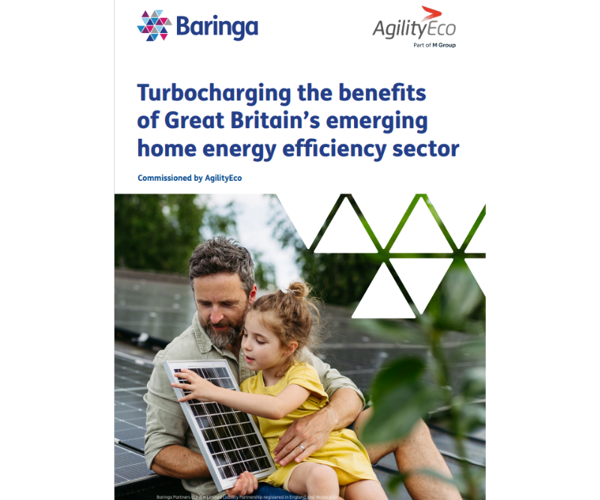
Turbocharging the benefits of Great Britain's emerging home energy efficiency sector
Our collaborative report with Baringa showed that improving the energy efficiency of residential housing stock to an Energy Performance Certificate (EPC) rating of C or above is not just an environmental necessity but also a powerful economic strategy that can deliver multifaceted benefits for society. To support these efforts, we need the Government to implement a consistent policy framework, along with a committed Warm Homes Plan.
What was the purpose of the report?
Approximately 16.3 million homes in Great Britain have an Energy Performance Certificate (EPC) rating below C, the minimum standard for warmth. While progress has been made, more support is needed for those in cold homes. We commissioned this report with Baringa to highlight the opportunity for energy efficiency upgrades, which could also grow the home decarbonisation sector, create jobs, and boost the economy.

Upgrading housing stock to EPC C will unlock £140 billion in benefits
Insights from our report found that an investment of £16 billion of government funding in home energy efficiency could lead to an additional £49 billion in private financing. This total of £65 billion is needed to elevate Great Britain's housing stock to EPC C.
Upgrading the housing stock to EPC C is projected to generate up to £140 billion in benefits for the wider Great Britain economy by 2040. This is not just a long-term enterprise. Prioritising investment in warm homes can provide an immediate economic uplift – a potential £49bn of the total £140bn benefit can be unlocked over the next five years.
There are also direct benefits for consumers. Upgrading homes to EPC C can significantly reduce energy bills, alleviating cost-of-living pressures. Homeowners can save an average of £415 annually, with funded schemes like ECO3 achieving estimated lifetime bill savings of £8.6 billion.

Our recommendations
- A committed Warm Homes Plan underpinned by stable and long-term funding: Establishing long-term funding horizons will provide certainty for investors and the sector.
- A consistent policy framework: Avoiding disruptions and maintaining momentum.
- Private sector engagement: Creating incentives and conditions that attract private investment and participation from large employers.
- Workforce development: Investing in training and development programs to build a skilled workforce capable of meeting growing demand.
- Consumer engagement: Educating and incentivising consumers to adopt energy-efficient measures in their homes
By addressing the current limitations and creating the right conditions for engagement, the Government can unlock significant private investment, drive economic growth, and achieve its energy efficiency and affordability goals.
Programmes like the Warm Homes: Local Grant, the Social Housing Fund, and the Energy Company Obligation (ECO) can significantly advance progress if there is policy certainty. By leveraging these initiatives, the Government can accelerate home energy efficiency improvements – resulting in warmer homes, reduced energy bills, lower carbon emissions, and better living standards.

Creating a more sustainable future for generations to come
By prioritising investment in energy-efficient homes, we can create a sustainable and prosperous future, ensuring that Great Britain's transition to net zero maximises economic and societal benefits. The Government should establish clear, long-term policies and regulations that provide certainty for all stakeholders, particularly the private investors needed to unlock the substantial economic, environmental, and societal benefits.